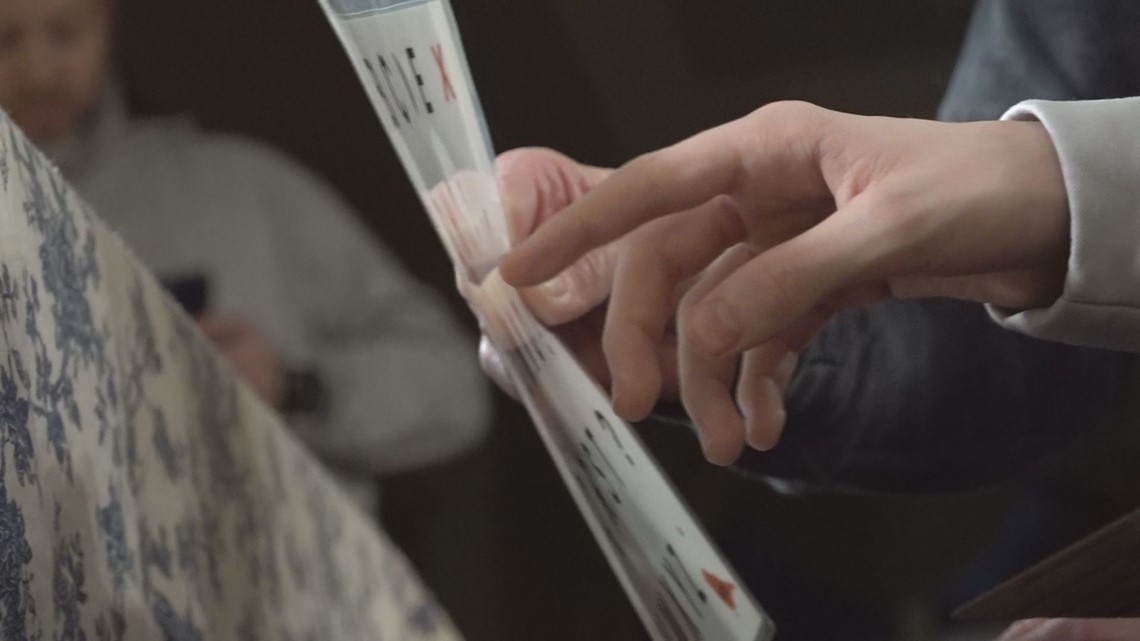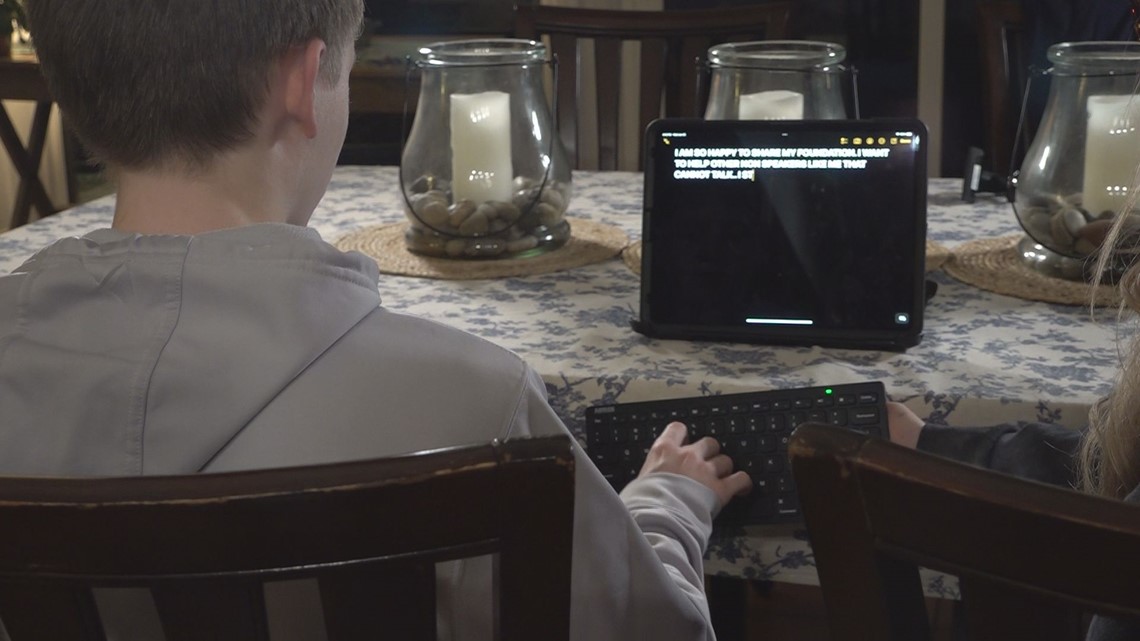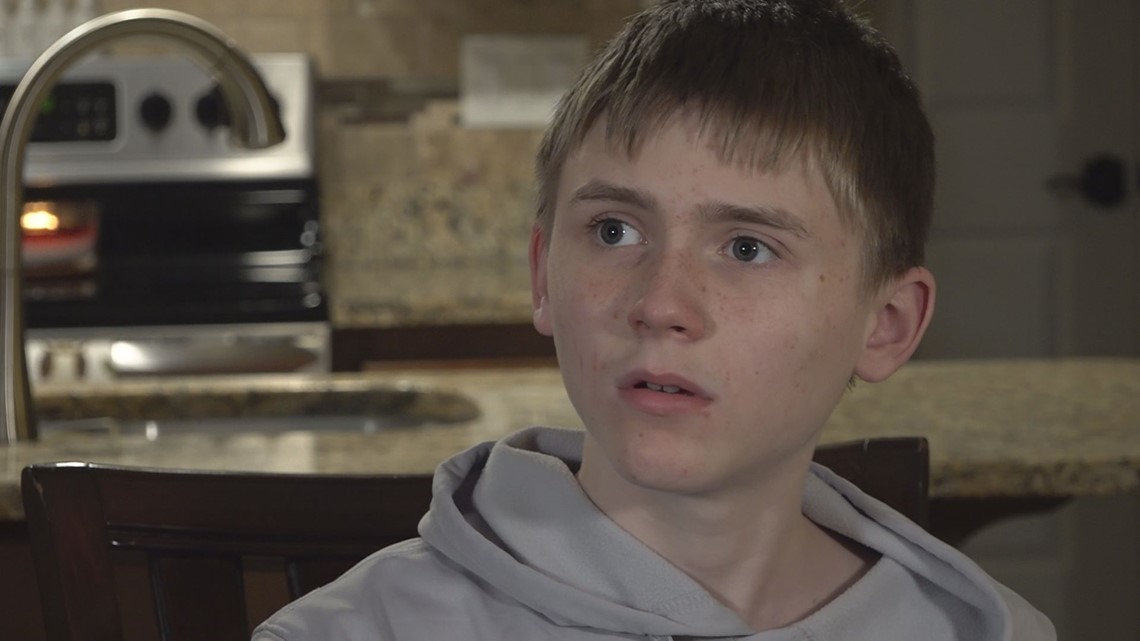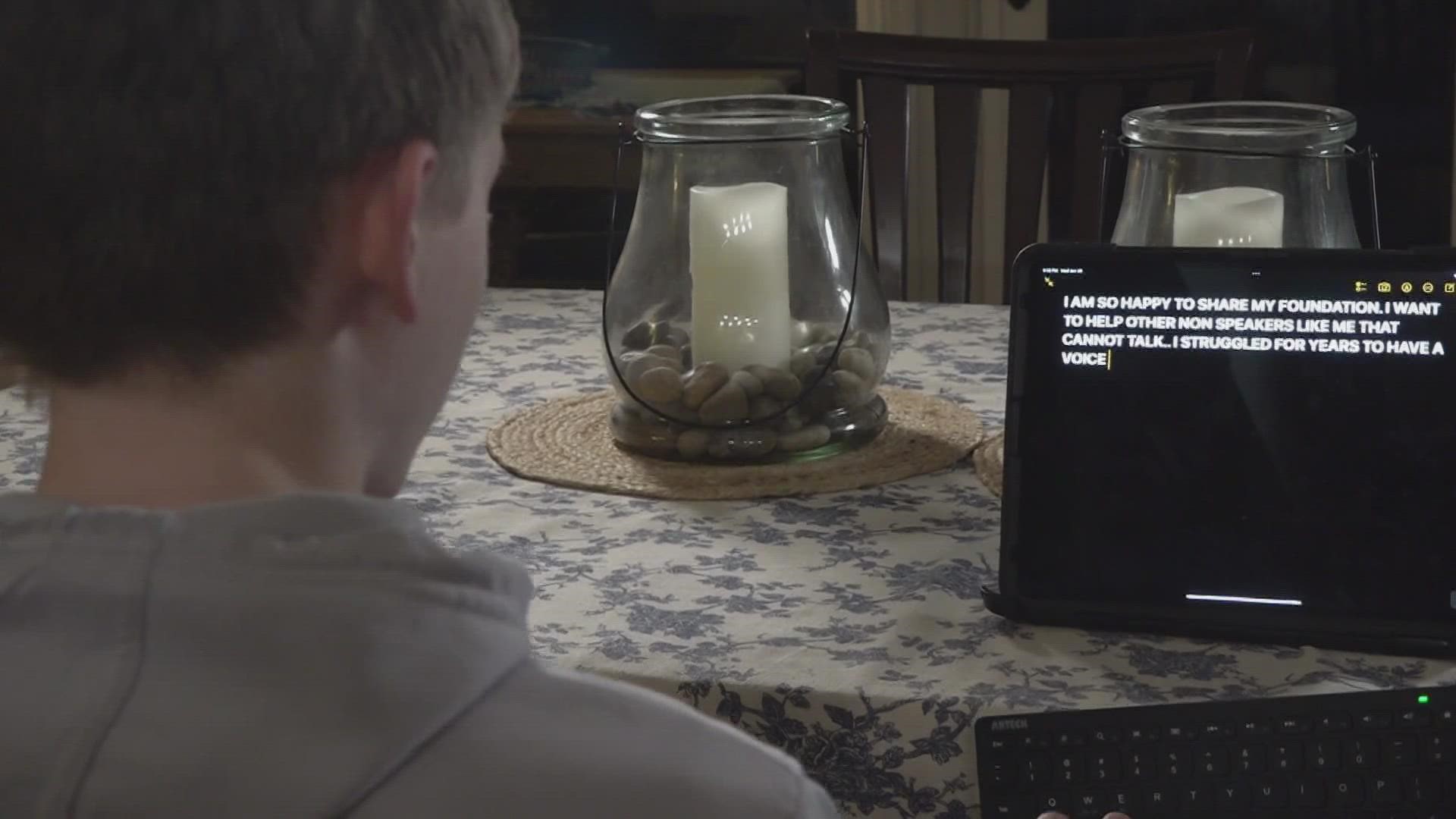KNOXVILLE, Tenn. — In 2010, Peyton Culver was diagnosed with an autism spectrum disorder. He was only two years old. His parents, Caryn and Chad, said he could not communicate until he was 10 years old.
"Being in his adolescent years, not being able to communicate at all, I think was really difficult for him. I mean, obviously, it would be difficult for anybody," Caryn said.
She said they tried everything. Nothing worked until a therapist introduced Peyton to a letter board.
"It changed his life," Caryn said.
The letter board is a special sheet of paper that has letters on it. Peyton is able to point to the letters to spell out words. For the first time in ten years of life, Peyton was able to express his wants, needs and opinions.
"We always knew he was smart and understood us, but he could never communicate," Chad said. "He's not ever timid about what he says. I mean, he just tells you what he thinks now."


The letter board allowed Peyton to start excelling in school. Before he was exposed to the board, he was in special education courses. Now, Peyton is part of the general curriculum.
However, this family did not stop at the letter board. They are constantly working with Peyton to find easier ways to communicate. The most recent kind of technology is helping Peyton learn to type, letter by letter, on a keyboard. His keyboard connects to an iPad that repeats the words he types.


That launched Peyton into the digital age. He now uses that technology to reach hundreds on his blog and Facebook Page.
Peyton started a foundation called the "Peyton Project" to help non-speakers find their voice. It was his idea.
"We started the foundation, did all the paperwork to have the 501(c)3, and then the first deposit was $250," Chad said. "Peyton was the first one to donate. He used payments from his Christmas and birthdays. So that's how it got started."
They use money donated to the non-profit to help other families access therapies and treatments to help their loved ones find ways to communicate. The foundation has grown significantly over the past few years. The Facebook Page has more than 700 followers. His parents say it grows with every post.
"He can't talk but he has a lot of words to say," Caryn said.
Peyton posts a blog post about once a week. Sometimes the posts are about his day and upcoming plans. Other times, those blog posts detail what it is like being nonverbal.
A post from January 16th reads: "I have always wanted to have friends. My body makes it hard to engage socially because I am only able to engage if it will cooperate. In the last few months, I have made a couple of true friends."
Another post from September 23 reads: "I am so thankful for my autism. I am able to show I am able to be a valuable part of this world and my autism helps me to be highly intelligent."
Chad said every post is directly from Peyton.
"Any words you see on there are usually just cut and pasted from the Ipad screen to the Facebook," he said.
When WBIR met Peyton, he typed a message for everyone reading the story about him. What he said is below.
"I am so happy to share my foundation. I want to help other non-speaker like me that cannot talk. I struggled for years to have no voice and I want to help others have the same opportunity. I am hoping I can help someone out there who is living in silence like I was for so many years."
For more information about the Peyton Project, visit their website.



